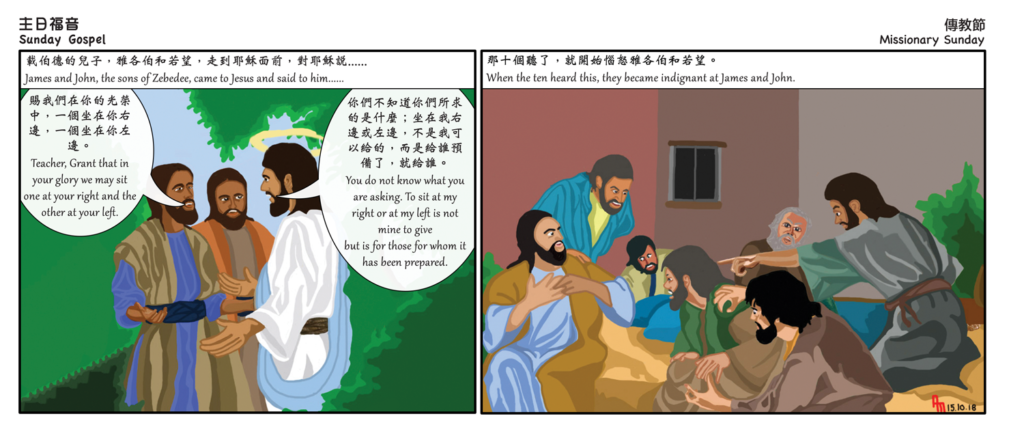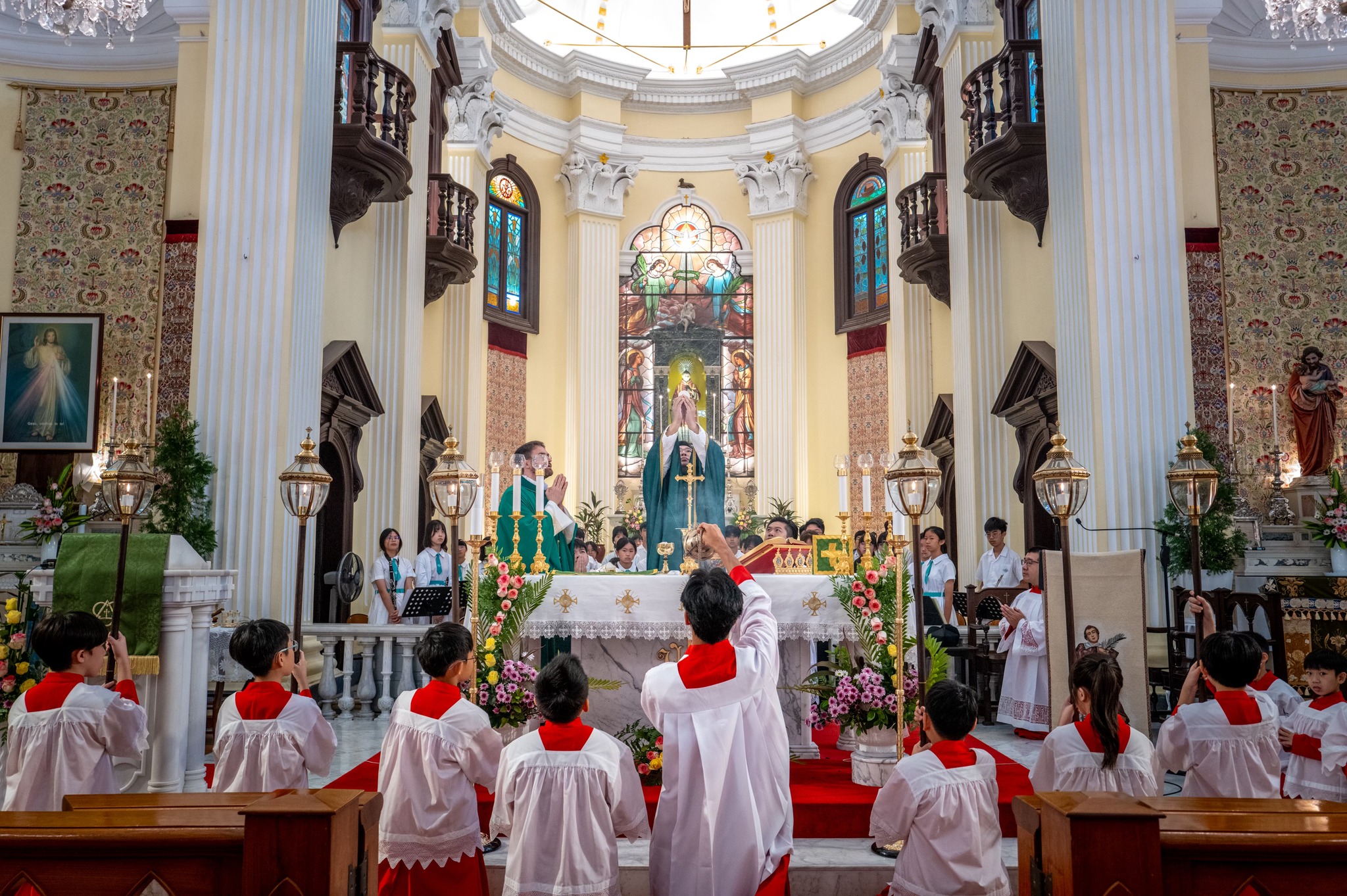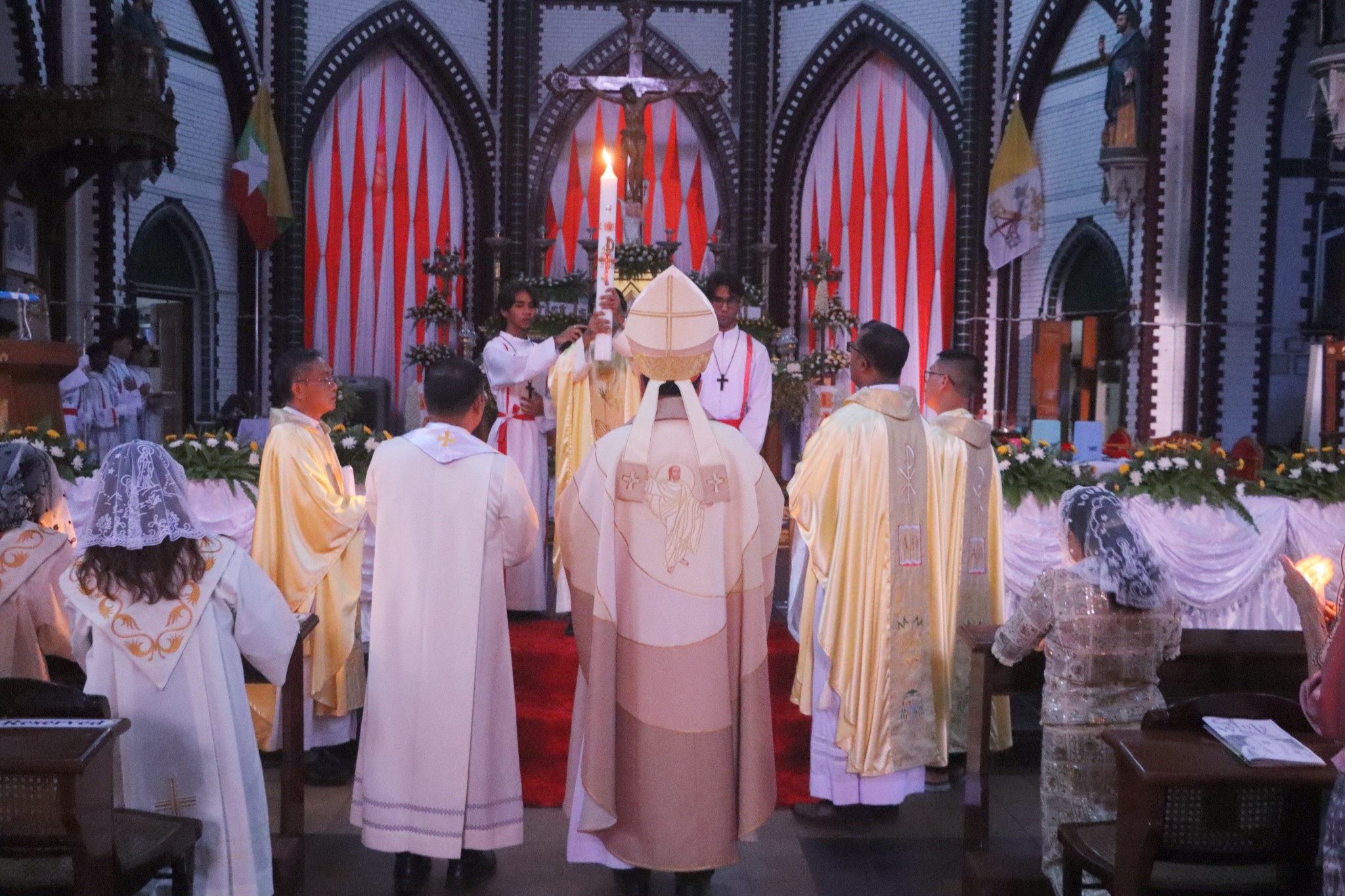GEN 2:18-24; HEB 2:9-11; MK 10:2-16
– Fernando Armellini SCJ
Claretian Publications, Macau
In no other field, as in that of sexual ethics, man is tempted to give his own morals, and so the salt of the gospel proposal is often made insipid by many “buts,” “ifs,” “howevers,” and “depends.” Today’s gospel sheds light into this moral darkness of ours.
The rabbis taught that the first commandment given by God is that of procreation, “Be fruitful and increase in number” (Gen 1:28). They considered this duty so fundamental that, if children were not born of a marriage, the husband had to send his wife back and have children by another woman.
Jesus, much against the tradition, resolutely proclaims that no divorce is part of the plan of God. The divorce has been introduced by humans, and is a destructive attempt on the work of the Lord who united man and woman in only one flesh.
Only monogamous and indissoluble marriage fulfills God’s plan and achieves the purpose for which people were made “male and female.” All other forms of cohabitation, although very ancient and culturally explainable, do not respect the dignity of man and woman.
All were appalled by the uncompromising position of the Master. Later, In the house, they question him on the subject. But Jesus reaffirms: “Whoever divorces his wife and marries another commits adultery against his wife” and adds: “the woman who divorces her husband and marries another also commits adultery.” This statement establishes—a phenomenon unheard of until then—the perfect equality of rights and duties of man and woman.
Christ has not imposed a new law, more severe than that of Moses. He has only invoked God’s original plan that does not include divorce.
The goal is very high, but the footsteps of men are often uncertain. Since only God knows the weaknesses of each, no one can stand in judgment of their brethren; no one has the right to assess the guilt and pronounce sentences. In concrete situations, each sister/brother must be understood, accompanied, helped so that one can give the best of oneself.
To show oneself understanding and patience does not mean to soften the demands of the Gospel or adapt to the current morality.
Translated by Fr John Ledesma SDB
Abridged by Fr Jijo Kandamkulathy CMF
“The covenant between the spouses is integrated into God’s covenant with man”
– May Tam
www.FLL.cc
Perhaps it is good to revisit the true notion of marriage in our Catholic faith. The Scripture begins with a very positive vision of marriage in the creation of a man and a woman. They are more than companion or partner, they are bone and flesh of each other (Gen 2:23). In this aspect, they are to live in mutual love, respect and unity. This matrimonial union also demands indissolubility, fidelity and fecundity (CCC 1643, FC 13). In the Old Testament, God’s relationship with His chosen people was described (mostly through the prophets) in covenantal and spousal language (Is 54, 62; Hos 1-3; Jer 2-3, 31; Ezek 16, 23; Song of Songs), signifying that a marital bond is by nature a covenant, “the covenant between the spouses is integrated into God’s covenant with man” (CCC 1639). This was to prepare for the new and everlasting covenant which will be brought forth by Jesus Christ the bridegroom (Jn 3:29; Mt 9:15, 25:1) who invites us all to the “wedding feast of the Lamb” (Rev 19:7, 9, 21:9).
The fullest expression of the truth of Christ’s redeeming love in the analogy of spousal marriage is found in St Paul’s Letter to the Ephesians 5:21-32 (MD 23). Thus “Christ has added to marriage the dignity of a sacrament” (Arcanum 23, CIC 1055) and therefore Christian marriage is sacred and ecclesial in nature. It is sacred because it is sealed and sanctified by the Author Himself who bestows on it grace and blessing. It is ecclesial because it is a visible sign of consent and commitment of mutual self giving (GS 22, TOB) in the presence of the faith community, a reflection of the very essence of the Trinitarian life of love and communion. “The great mystery of Christ giving Himself for His beloved spouse, the Church……takes us back to creation, to God as Creator, and into the very Mystery of the Holy Trinity, three Persons, One in love, the ultimate source of all love and union” (Peter Elliott).
Love which depends solely on feelings and emotions is not reliable. It can change and erode over time. Love is a commitment of being faithful just as God has committed Himself to be faithful to His covenant and to His people (Deut 7:8-9; 2 Tim 2:13; Heb 10:23; Ps 86:15; Lam 3:22-23). Let us not be swayed from the truth of marriage but adhere to the promise we made on the day when we said “I do”.


 Follow
Follow


